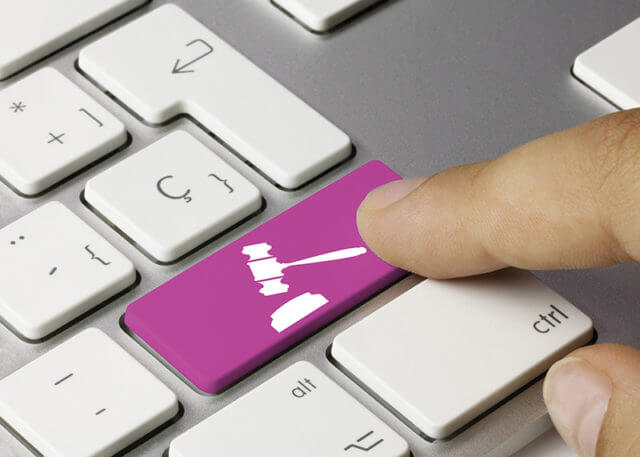To secure and speed up the consultation process, many e-purchase publishers offer a reverse auction module. Used to ensure transparency and fairness, the practice is democratizing within the purchasing departments, the most mature of which do not seek to break prices but to select the best offers in a multi-criteria context. Relying on a specialized provider, such as Acxias, which offers a dedicated service, may be necessary to take ownership of the device and maximize the gains.

In fact, the companies' disinterest in reverse auctions is primarily due to the purchase perimeter concerned. While most categories are potentially candidates, in accordance with the Jacob Act of 2005 which excludes a few very specific areas, it should not be purchases whose pricing is subject to market prices, such as raw or agricultural materials, or requiring too complex specifications. In addition, a number of requirements must be met. In addition to the fact that offers must be received from at least two suppliers, they must be technically comparable in all aspects other than price.
A third of publishers offer auctions
Beyond that, no limit. "We do not refuse any category, even in services, provided that we have framed the file upstream to prevent broken prices from leading to a deterioration in terms of quality of service, responsiveness, innovation, etc.," explains Jean-Baptiste Anne, Head of Information Methods and Systems (MSI) at the purchasing department of the Societe Generale Group, where the first auctions date back to 2007. The practice had intensified there since 2010, with an average of 100 operations carried out each year, before falling back to ten between 2012 and 2015. At issue: the unavailability of the MSI team, responsible for accompanying buyers in defining their auction strategy, which had to focus on a project to deploy an IS supply of computer intellectual services with Oalia. But in the last two years and the establishment of BravoSolution, the dynamic has been revived, with some thirty auctions per year in France and about fifty internationally.
While Bouygues Telecom shares the same view on the addressable perimeter, it limits auctions to the most relevant categories, depending on the purchase history and market developments. "For some markets, such as energy, suppliers are unfavourable," explains Jean-Baptiste German, head of purchasing tools and processes within the group, which has had an auction tool since the establishment of Ariba in 2011. "Other cases are prohibitive, especially when commercial issues are at stake, in the context of bilateral customer-supplier relations," he adds. At first little used, by lack of knowledge, auctions became one of the major tools of the function from 2012-2013, following the arrival of a new purchasing director and a plan of voluntary departures. "To cope with the reduction of the teams, they have democratized, allowing to increase the purchasing performance and the savings," explains Jean-Baptiste German. From five a year, out of a total of 500 purchases files conducted by the group, the number of auctions reached about thirty in 2016.
Another obstacle to the development of auctions, often mentioned by purchasing departments: the duration of implementation of operations, as well as the heaviness of systems that requires a long learning. Aware of the problem, the publishers offering the auctions are also working towards simplification or, at least, providing better support. Rather numerous editors: out of the thirty who filled out the questionnaire distributed by Acxias to create the functional tables of his book "Digitalization of Purchases", more than a third mention a feature for conducting reverse bids. The functionality would even be present in almost all integrated suites covering the entire purchasing chain, especially the source-to-contact upstream process. "Even if they don't plan for immediate use, companies often check the existence of this module when choosing their e-purchase solution Bertrand Gabriel, director of Acxias, adding that "they often rely on a consultancy to verify the feasibility of an operation and the relevance of a tool ».
Supplier support is fundamental
Added to these difficulties are the fears expressed by the purchasing teams, which, in addition to a deterioration in relationships with suppliers, fear losing control of the final negotiation, the most rewarding stage of their function. The practice would show, conversely, that there is no degradation of the work of buyers, whose role is strengthened during the preparatory phase, which allows first to measure the relevance of the transaction and possibly to choose the best auction model: type, duration, etc. "To carry out an auction, buyers must also receive the agreement of their interlocutor internally, for example the DSI when it comes to computer equipment" Jean-Baptiste Anne says. Once the approach has been validated, they must then refine the expression of the need, help the internal partner to detail the specifications, value the market, analyse the risks, pre-select the participants, etc. "We also take advantage of this phase to review the allotment of the files, frame the negotiation strategy and define the allocation rules, to make them easily understandable by the suppliers" he continues.
But are not the market research and the achievement of a detailed specifications, upstream, during the preparatory phase, too time-consuming? "This work is also necessary in the context of a traditional consultation," replies Jean-Baptiste German, at Bouygues Telecom. However, there is also the necessary support of internal customers (prescribers, users, etc.), with the support of management who must get involved and promote the tool to facilitate its acceptance, and suppliers. With the latter, the preparatory work is fundamental. "Most suppliers accept the principle, others can bow. But an accompaniment, to explain the rules of operation and the use of the tool, generally reassures them, explains Jean-Baptiste Anne, of the Société Générale, who today prefers to talk about "digital negotiation" or "digital competition" while the term auction is still very connoted. Technically, "BravoSolution takes care of the training of suppliers and acts as a trusted third party when conducting the auction, in case of a question or technical problem, to prevent internal interlocutors from interfering during the event."
At Bouygues Telecom, where upstream supplier support includes a Training and a test auction, the day before the operation, the teams remain available to answer all questions. "Including during the auction which can be stressful for suppliers," says Jean-Baptiste German. "It's about the credibility of the function vis-à-vis them, but also the internal customers." On the other hand, he continues, " Ariba does not intervene during the operation, so as not to encroach on the field of purchases, sufficiently trained upstream. However, the publisher remains available as support, if the buyers need it, and to check the technical progress of the auction." At the end of the auction, suppliers can finally ask for clarification, and even the winner's name. At Societe Generale, the approach goes even further. "We are extending our support to suppliers who have not been selected, to explain the reasons for their failure," says Jean-Baptiste Anne.
A combination of price and quality criteria
Beyond these constraints and changes in habits, "purchases must understand that auctions allow them to deepen contract negotiation, for work that produces more added value," says Jean-Baptiste German. With multi-level benefits. Auctions first guarantee more transparency, in terms of legibility and understanding of the negotiation and contracting process, on the side of both internal customers and suppliers. "This forces purchases to be even more rigorous in the application of the business process, thus allowing for increased traceability in the event of a challenge once the contract is awarded," says Jean-Baptiste Anne.
By securing the process, suppliers would feel reassured, and their relationship with buyers would be strengthened. In fact, auction companies believe that relations with suppliers have not been deteriorated. Better yet, the auctions would pull these up. "While today's principle of reverse auctions is not always well perceived by suppliers, it allows them to improve their performance," says Pascal Poirier, project manager at the publisher. SynerTrade, historically positioned in this niche. "Auctions help establish an ethic of transparency, with a very positive effect on suppliers who collect information and details that are useful for their own progress."
A second advantage is the speed of negotiation. Auctions are not a substitute for supplier meetings, but they limit trade and generate a very significant time saving. "While the preparatory phase may seem longer, the device can receive several dozen offers over a very limited period of time, usually in less than an hour," Jean-Baptiste Anne, told Société Générale. In the classic scheme, it takes several weeks or even months for critical or complex purchases.
Finally, the economic interest of the scheme remains, since price remains an important criterion for selection. In recent years, however, companies have tended to give it less weight. "Today, we don't bid to bring down prices," says Jean-Baptiste Anne. "The allocation is almost always done at best, converting technical offers into euro equivalents and applying a bonus system to suppliers' business proposals." The same goes for Bouygues Telecom, where price, which remains an important criterion for the savings target, is now weighted by up to 50% by the qualitative aspects. "To mix the two aspects, we assign a quality coefficient to the supplier and its product/service, according to criteria communicated upstream," explains Jean-Baptiste German.
Moreover, rather than choosing the best offer, the telecom operator considers that reverse auctions allow it to eliminate those that do not interest it. To do this, it practices two types of auctions: "non-attributes," which aim to establish a short list by making an expanded sourcing, and "attributes," to choose an offer from a few suppliers previously selected by the purchasing teams. "Auctions can also be used for the allocation of business volume. This is the case with the two suppliers of our Bbox, who each have an ongoing contract, every quarter," Jean-Baptiste German. As with the categories concerned, the potential of the auctions therefore seems to have no limits. And companies, possibly with the support of an external provider, would be wrong to deprive themselves of this lever that helps to install virtuous models in their purchases.

